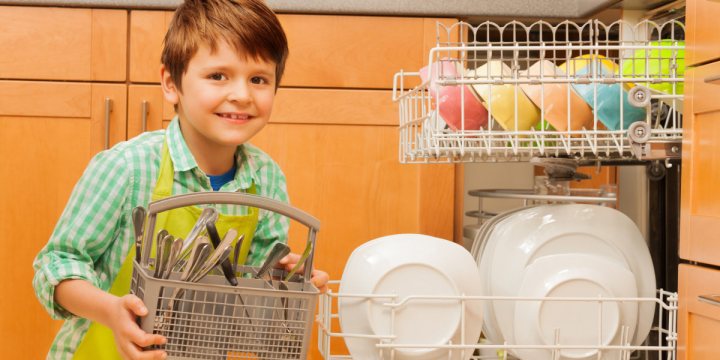“You love him more than me!” Susan yells at her month, after receiving a slightly smaller piece of cake than her brother. A similar reaction comes from Aaron, who wants his father to read him a story instead of helping his older brother with his homework. How can we make our children understand that we love them all just as they are—that they are all different, but that each one is equally loved and important?
Some great advice comes from Bernadette Lemoine, psychologist and psychotherapist, and Diane de Bodman, co-authors of a parenting book published in French called Finding the words that will make them grow and flourish (Trouver les mots qui font grandir pour les aider à s’épanouir).
1Avoid all comparisons, positive or negative
Comparisons, whether positive (“You’ve done even better than your sister!”) or negative (“It’s not as good as your brother’s”), prevent children from finding and peacefully accepting their own place among their siblings. Children will struggle to build themselves up as individuals if they feel that they only exist in relation to their brothers and sisters. In addition, comparisons create a spirit of competition, or worse, rivalry, which does not lead to good relationships among siblings.
While it’s easy and tempting for parents to make comparisons in their desire to show their appreciation for their children’s temperaments or talents, it’s never a good idea to make comparisons in front of them. It divides the children, foments a feeling of inferiority or superiority in them, and creates rivalries and jealousies.
Not only does Lemoine urge parents not to make comparisons, but she encourages parents to teach their children not to compare themselves to each other. She suggests saying something like, “In our family, we’re all different. We don’t have to compare ourselves to each other, and we don’t have to compete. Comparing yourselves won’t gain you any more love from mom and dad. You have to be who you are, with your own strengths and weaknesses.”
The psychologist suggests comparing the family to a rainbow to show that each member is indispensable: “Our family is like a rainbow: it’s beautiful! You’re all different and each one of you counts just as much. The rainbow is beautiful if all the colors are present in it.”

2Show that every child is unique
Every child is unique, and needs to feel unique. It’s up to each parent to find the right words or gestures to make each of their children understand that they are unique and that their parents love them as they are, with their strengths and weaknesses.
The Lord found beautiful words to express this kind of powerful love to His people: “Because you are precious in my sight, and honored, and I love you, I give people in return for you, nations in exchange for your life.” (Isaiah 43:4).
Keep in mind each child’s love language, which can be communicated through words, tender gestures, quality moments, and one-on-one time, according to their tastes and age.

3Explain that equality is not justice
Different bedtimes, dedicating more or less time to some children than others at any given time, giving more or less praise for work done when the effort hasn’t been the same … These apparent “inequalities” aren’t unfair. “There’s no reason to think that certain differences in parental treatment are unfair, because the children themselves are different,” the authors point out.
Equality is not justice. A child can understand this if we explain it simply: “Justice is what is right for each person, what is good for each one. You are of different ages, and have different tastes… and so much the better! It wouldn’t be fair to treat you all exactly the same way,” we can explain.
As for the question of household chores and duties, Lemoine and de Bodman invite us to emphasize that children are called upon to be more responsible as they grow up. “It’s true that sometimes you’re asked to help out more than your little brother. We ask something else of him. I understand that it’s hard for you, and that it seems unfair, annoying, or difficult. When you were little, we did everything for you. Now that you are older, there are things you can do for yourself on your own. You’re also starting to be able to do things for others.”

These simple tips will go far in keeping a spirit of harmony in the home. Showing favoritism is never helpful for siblings and their relationships with each other, but with a little care and attention, parents can keep the peace and help their children become lifelong best friends.

Read more:
How to put an end to sibling rivalry

Read more:
5 Sets of famous siblings who positively influenced the world

